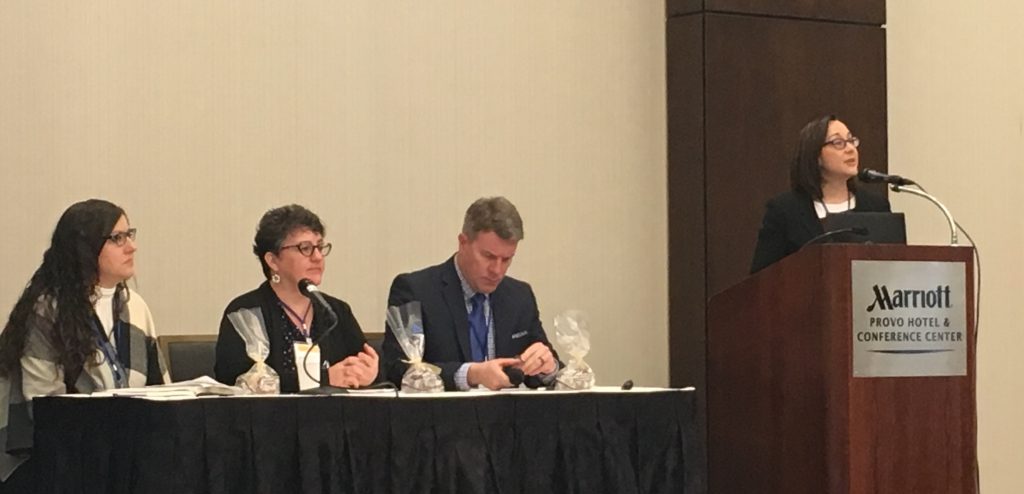The Utah System of Higher Education hosted the third annual Access and Completion Retreat on Friday, April 12, where representatives from each public higher education institution in Utah, community partners, as well as Utah Regent Steven Lund discussed how institutions can best serve post-traditional or adult learners.
After Utah Commissioner of Higher Education David Buhler welcomed attendees to the retreat, the keynote panel, featuring higher education experts from around the country, discussed what their institutions are doing to help post-traditional students navigate college education.
Keynote panelists included Buffy Tanner from Shasta College, Tracy Robinson from the University of Memphis, and Matt Bergman from the University of Louisville.
The panelists discussed what barriers exist for post-traditional learners and how institutions can remove those barriers through cross-institutional partnerships and by examining class scheduling, resource center hours, online offerings, free and online resources, and especially prior learning credit.
Legislators passed HB 45, Higher Education Credit Amendments during the 2019 Legislative Session which requires the Board of Regents to establish a plan for statewide prior learning. This “framework” supports the Regents’ priority to validate and ensure current statute and policies related to transfer of credit are being followed. Some of the plan’s requirements include:
- Institutional plans for advising and communicating with USHE students and the public about credit for prior learning
- How credit for prior learning is transferred between institutions
- How it is transcripted
- Institutional procedures for maintaining transparency and consistency
Each institution will be required to report to the Board regarding the types of prior learning for which credit is provided and the total amount of credit for prior learning the institution awards.
Data from a 2016 College Board study was cited on the impact of CLEP exams, which measure prior learning in subject-specific areas, and showed:
- CLEP students have significantly higher cumulative GPAs than non-CLEP students
- Among students enrolled at four-year colleges, earning a credit-granting CLEP score increases the probability of completing a bachelor’s degree by 1.2 percentage points, or 2.6%.
- Students who took prior learning assessments (PLA) like CLEP and earned bachelor’s degrees saved an average of 2.5–10.1 months earning their degrees, compared to non-PLA students earning degrees.
After the keynote, attendees broke out into sessions including topics like:
- the Intersectional Nature of Adult Learners
- Who are Utah’s Adult Learners?
- Helping Adult Learners in Transition
The retreat concluded with an update from the College Access Network of Utah subcommittees including First Generation & FYE, Adult Learner, Undocumented, and LGBTQ.

